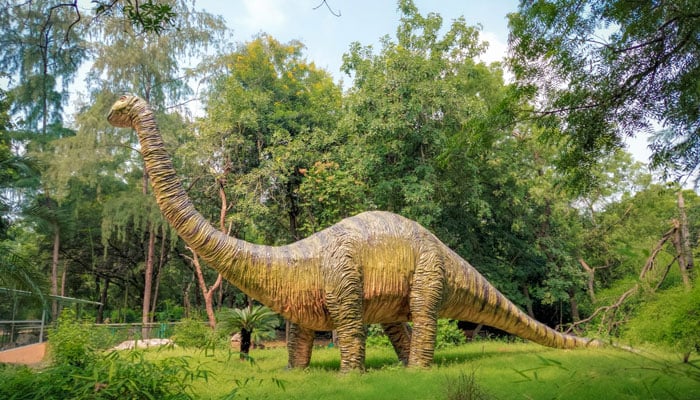'Unusual' dinosaur unearthed by palaeontologists in Mississippi
Specimen belongs to hadrosaur family that lived 82 million years ago on Earth
Paleontologists have discovered a dinosaur belonging to the family of hadrosaur that lived 82 million years ago in MIssissippi, United States.
Hadrosaur, who are a family of duck-billed, herbivorous dinosaurs, includes at least 61 identified species out of hundreds more which once roamed the Earth.
Researchers have unearthed the portions of the spinal vertebrae, forearm, feet and pelvic bones of this specimen. However, from its location near Booneville in northeast Mississippi, extracting the rest of the fossil has proven challenging.
“This thing sat for a while because we didn’t have anybody to work on it,” said James Starnes, an official with the state’s geology office, reported Earth.
The specific species of this hadrosaur fossil remained unidentified for nearly two decades. As of now, a 3D method of forensic analysis called geometric morphometrics is being used by the researchers to solve the mystery before the fossil is fully unearthed.
The hadrosaur’s remains are being analysed by Derek Hoffman, a geology graduate student at the University of Southern Mississippi (USM), with this method.
“What geometric morphometrics does is it takes a shape-analysis approach,” he explained.
Key features or “landmarks” for a given bone sample are determined by this method. Moreover, via complex statistical models to identify differences and similarities with known bones, it also compares their distances and ratios.
-
James Van Der Beek’s 'heartbroken' ex wife breaks silence of his death
-
Kylie Kelce breaks silence on 'beef' with Dwayne Wade
-
Suspect kills six across Florida before taking his own life
-
Savannah Guthrie shares sweet childhood video with missing mom Nancy: Watch
-
Piers Morgan praised by Ukrainian President over 'principled stance' on Winter Olympics controversy
-
Halsey's fiance Avan Jogia shares rare update on wedding planning
-
Las Vegas father shoots daughter's boyfriend, then calls police himself
-
'Fake' sexual assault report lands Kentucky teen in court












